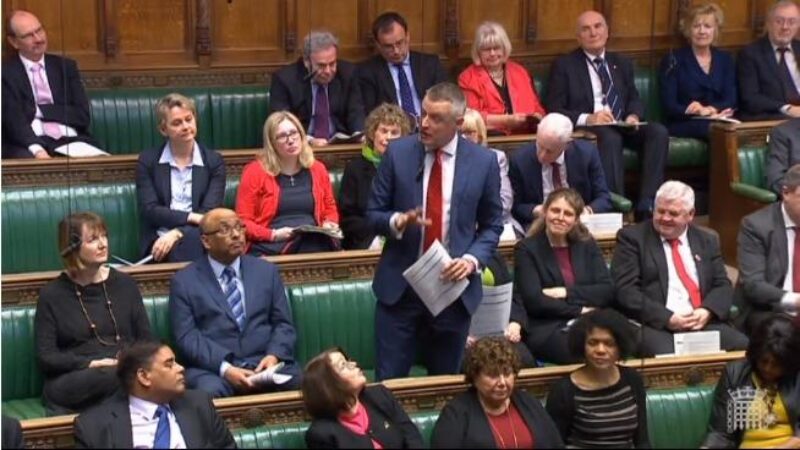Luke Pollard MP Member of Parliament for Plymouth Sutton and Devonport

- The All-Party Group wants to improve our understanding of social media’s impact on mental health.
- Labour MP, Luke Pollard has been a strong advocate of mental health ever since his election.
- Recent report commissioned by APPG says there must be better guidance for the public and young people in particular.
Luke Pollard MP for Plymouth Sutton and Devonport has been elected Vice-Chair of the APPG on Social Media and Young People’s Mental Health and Wellbeing. It was established in March 2018 and is a cross-party group of UK Parliamentarians with secretariat provided by the Royal Society for Public Health (RSPH).
The group is aiming to:
- Build upon the evidence base of the impact of social media upon young people’s mental health and wellbeing;
- Raise the political profile of the issue;
- Drive policy change that mitigates the bad and maximises the good of social media for young people.
Commenting on his new role in the APPG, Luke said:
“I’ve been campaigning for better funding for mental health services in Plymouth ever since being elected. It’s something I’ve raised time and time again in Parliament. We know that kids are more likely to suffer from mental health problems than ever before. Young people today are the first generation to grow up with social media and we don’t fully know the impact that this is having. Young people’s mental health is more important than party politics, so I’m pleased to have joined the APPG to work cross-party on this issue. More research needs to be done on the impact of social media on mental health, but in the meantime we must make sure that kids are receiving a comprehensive digital education to help them understand the risks of social media.”
Notes:
Key results from the report which you can download here:
- Social media can have a range of positive effects: providing a platform for self-expression, enhancing social connections, and supporting learning.
- Young people using social media to find support for mental health conditions are at high-risk of unintentional exposure to graphic content and that discourse could unhelpfully “glamorise” mental illness and prevent young people from accessing professional help.
- While 12% of children who spend no time on social networking websites have symptoms of mental ill health, the figure rises to 27% for those who are on the sites for three or more hours a day.
- Almost two-thirds (63%) of young people reported social media was a good source of health information.
- Pressure to conform to beauty standards perpetuated and praised online can encourage harmful behaviours to achieve “results”, including disordered eating and body shame.
- 46% of girls compared to 38% of all young people reporting that social media had a negative impact on their self-esteem.
The APPG’s recommendations going forward:
Establishing a duty of care for social media providers
- The Government should introduce a statutory duty of care for social media companies in the form of a statutory code of conduct for all relevant service providers, which includes the definition of key harms for the independent regulator to focus on.
- That the Government resources Ofcom to assume responsibility for regulatory duties.
- That the statutory code of conduct is upheld by all social media platforms with registered UK users aged 24 years and under, regardless of size, newness or the number of users.
Clearer guidance for the public
- A Social Media Charter is developed and implemented by Government to support young people, parents and those working with young people, to help mitigate some of the negative effects which social media can have on mental health and wellbeing, whilst promoting the positives.
- That the Government publishes evidence based guidance for those aged 24 and younger to avoid excessive social media use, that is use of “websites and applications that enable users to create and share content or to participate in social networking”. Further research is also recommended to determine what constitutes “excessive use” and the extent to which this varies amongst different demographic groups.
The establishment of a Social Media Health Alliance. Funded by a 0.5% levy on the profits of social media companies, the Social Media Health Alliance will:
- Commission and review the growing evidence base on the impact of social media on health and wellbeing with a view to disseminating research and translating it into further policy calls and changes to the Code of Conduct.
- Support the ambitions for a comprehensive digital education.
- Establish clearer guidance for the public.
